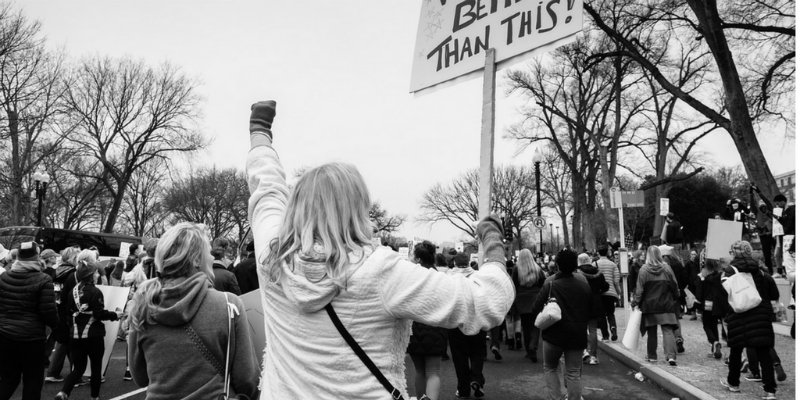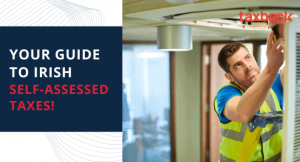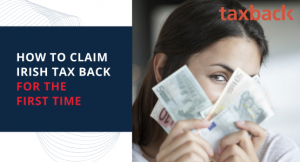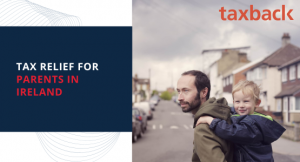10 Budget Day Announcements To Love (and Hate)
It’s that time again…
The government will be announcing Budget 2018.
So, like me, you’re probably wondering what’s in it for me?
We’ve had some difficult budgets in Ireland in recent years. We had a quick look at some popular and not so popular budget announcements from over the years.
See anything you like?
1. Free GP care for under 6's
This one is hard not to like! A GP visit can cost around 60 euro each time so it was welcome news when the free GP scheme for under 6’s was announced in Budget 2013. The scheme costs the state around €37 million a year and has provided free visits to GP’s for over 270,000 children since the scheme kicked off since mid-2015.
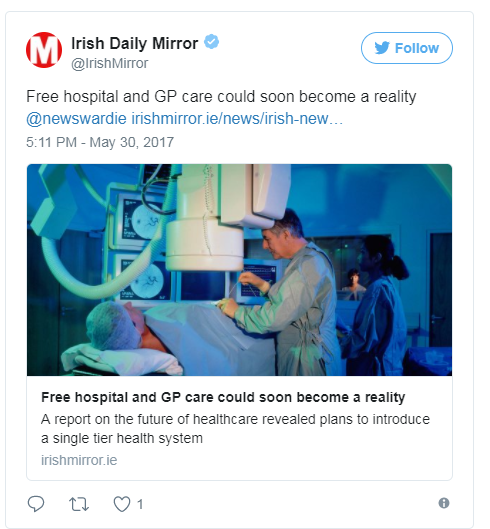
The average Irish tax refund is €1,880
Minster for Health Simon Harris says the scheme is part of a bigger rollout of free healthcare for everyone and the next step in his plan is to introduce free GP care for under 12’s. Free GP care for under 6's was originally envisioned as a step in the rollout of free GP visits for all and Minister for Health Simon Harris hopes to expand it to children under 12 by the end of the year, however his plan has run into some obstacles.
Some GPs are concerned about practices being overrun and free care being implemented without proper planning.
Dr Padraig McGarry, spokesman for GPs in the Irish Medical Organisation, stated,
"We don't take on unresourced work".
He made it clear they wouldn't take on a group of older children unless there was a new contract agreed. Despite this, Harris reaffirmed his commitment to introducing free GP care to all children under 12 and stated it was a priority for the government.
2. Home Renovation Incentive (HRI)
€62 million.
This is the total value of the credit claimed by people availing of the HRI scheme since it kicked off in 2014.
The incentive was announced in Budget 2014 to encourage people to upgrade their properties and the average claim now stands at €15,947. The scheme lets you claim a tax credit at 13.5% of qualifying expenditure on any repair, renovation or improvement works carried out on your home by a qualifying contractor.
The scheme includes:
- Painting and decorating
- Driveways
- Attic conversions
- Plastering, tiling, and plumbing
- Garages
- Bathroom and kitchen upgrades
- Fitting alarm systems
- Septic tank repair/replacement
- Conservatories
- Landscaping
- Solar panels and central heating upgrade
- Built-in wardrobes
- Conversion of residential premises into multiple rental units
The scope of the scheme was extended in December 2014 to cover all homes-including those rented out by landlords.
In Budget 2017 the scheme was extended again to the end of December 2018.
It’s fair to say the scheme has been popular with those who have availed of it, with people using it to upgrade their heating systems, do attic conversions or renovate their entire home.
The one drawback is that the qualifying work must cost at least a total of €4,405 before VAT at 13.5%, which comes to a total of €5,000 with VAT included.
The average Irish tax refund is €1,880
3. Fair Deal Scheme for Nursing Homes
“What has been unsettling will be reassuring. What has been unclear will be clear."
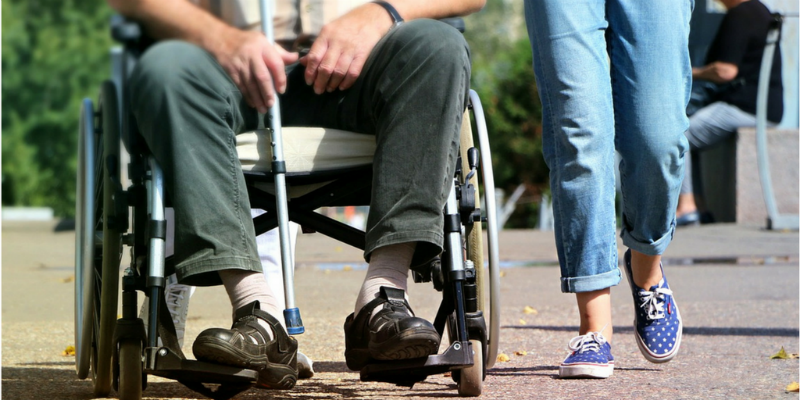
This statement was read out by Mary Harney, the Minister for Health and Children in Dáil Éireann on November 2008 along with her announcement of the Fair Deal scheme for nursing homes in Ireland.
This scheme was introduced to help people afford the cost of nursing homes for themselves and their loved ones and replaced the old “subvention” scheme which was said to be grossly inadequate.
Previously, people without the means to afford the cost of nursing home care would end up on waiting lists for state care. Often this would mean them sacrificing over 80% of their pensions to help pay for the cost. Others would have to rely on family to foot the bill.
I think we can all agree that the Fair Deal Scheme came as a welcome relief for people who don't have the means to support themselves or relatives in nursing homes.
There are currently a number of supports for people in nursing homes, including tax relief that’s available at the highest rate of tax you pay and you can claim up to €75,000 per year. You can claim the relief for every year you pay the fees.
If you would like to apply for tax relief now, simply apply at Taxback and we’ll give you an estimate on what you can recover.
4. Earned Income Tax Credit
Finally...some good news for the self-employed and their taxes announced in 2016!
Benefitting over 147,000 self-employed individuals across Ireland, the Earned Income Tax Credit helped level the playing field on taxes for PAYE earners and the self-employed.
This credit can be claimed yearly by self-employed people and reduces the amount of tax they need to pay.
It allows self-employed workers claim a tax credit similar to those earning in the PAYE system and currently stands at €950.
However it's still less than the €1,650 mentioned when the scheme was first introduced.
Hopefully we will see the government push the credit up again this year to encourage people to setup their own business!
If you need help claiming the credit or you are unsure if you can claim, contact Taxback here.
5. Tax on cigarettes
''Raising taxes is the most effective way to reduce tobacco use''.
A report by The World Health Organisation in 2015 says that increasing the tax on cigarettes is most effective when discouraging people from smoking.
The report also states that excise tax is the most important and effective type of tax.
And while smokers may not be a fan, the perception is that most Irish people seem to welcome raising tax on cigarettes, especially when it prevents tax from being raised in other areas.
In 2016 Revenue took €1.1 billion in tax from tobacco sales and while sales of cigarettes have been falling in recent years, so will the cost of healthcare for smokers as so many people have quit.
Sales of cigarettes have slumped over the last few years and in Budget 2017, a pack of 20 cigarettes rose by 50c. Typically around €8.62 of an €11 pack of normal cigarettes is now collected as tax.
While there has been some trade on the black market, Revenue has cracked down on much of this and has made many seizures of illegal imports in recent years.
With sales of cigarettes down, it’s becoming less of an earner for Revenue. One way for the government to make up for this is to extend the tax on tobacco to e-cigarettes and this has already been proposed by officials in the Department of Finance.
6. The Infamous ‘’Shoe Tax’’

When Budget 1982 failed to pass in the Dáil, the media blamed the so-called ‘’shoe tax’’ and the Fine Gael/Labour coalition government collapsed.
While this failure of the budget was largely put down to opposition to an 18% VAT tax on children’s shoes, former Taoiseach Garret Fitzgerald later stated that it wasn’t the real reason it didn’t pass.
However, the media still appeared to jump on it. The proposal had been that the government should introduce a higher tax on children’s with the reasoning that women with small feet could also wear them.
Garret Fitzgerald, later stated it was a myth that the VAT on shoes had anything to do with the failure of the budget.
He said the budget didn't make it through because certain Labour party politicians voted against it for different reasons, none of which were directly related to the shoe tax, including proposals of reductions in food subsidies.
He stated:
''I was moved to reveal the Department of Finance had argued that because some women had smaller feet than some children such a distinction should not be made. This argument had tickled my fancy during the pre-budget cabinet discussions, and had stuck in my mind.
It also stuck in the minds of the media. My attempt to lighten the occasion had instantly transformed our budget defeat from an issue of food subsidies into one about children's shoes'’.
The tax still served to highlight the poor working relationship between Taoiseach Garrett FitzGerald and leader of the Labour coalition party Dick Spring at the time.
Fianna Fáil took on a short-lived leadership with the coalition reforming in November of the same year after a second election.
7. USC: Ireland's most hated tax?
''Penal, pernicious, hated, nasty, cruel, brutal''.
These are just some of the words used to describe one of Ireland’s most hated taxes-the controversial Universal Social Charge.
While USC has its supporters in some fields,
‘‘It’s one of the fairest and most progressive taxes in Ireland and could go a long way to solving our housing, education and healthcare crisis'' -David Gibney, Mandate Trade Union.
The majority seem to believe this tax to be an unfair burden on income.
In a recent survey, a large portion of respondents said abolishing the lowest USC rate of 0.5% on income up to €12k comes in as a priority on what they would like to see in this year's budget.
Why is USC so unpopular?
The perception that this was a temporary tax to get us through hard times probably hasn't done anything to increase the popularity of what many believe to be an austerity tax.
The Universal Social Charge was introduced in Budget 2011.
In an instant, Fianna Fáil lost a dozen seats and the public's hatred of this most pernicious tax was solidified. This turned out to be the last budget of the Fianna Fail/Green coalition.
While rates have been reduced over recent years, USC is still set to yield €5.6 billion by 2021 if it’s charged at the same rate it is today, and while most of us might be calling for it to be abolished, there is every indication that won’t be happening anytime soon. .
EU experts have also warned that any reductions in USC would need to be made up by tax hikes in other areas.
There have been cuts over the years and thresholds raised, however it looks like USC is here to stay in Budget 2018.
The average Irish tax refund is €1,880
8. The Bank Bailout
A net amount of €60 billion was paid by the Irish state to stabilise the banking system between 2008 and 2014.
€9 billion was paid on interest alone.
A number of harsh measures were introduced in successive budgets from 2008 and Budget 2011 saw the introduction of the universal social charge and the abolition of the employee PRSI ceiling.
The cut to minimum wage was a measure that caused huge controversy at the time as it was decreased by €1 per hour to €7.65.
Needless to say, the public were not too happy about bailing out a banking system that failed them.
Fianna Fáil went from being the most popular party in Ireland to third place and the Green party failed to retain even a single seat in the election in February 2011.
Every budget post 2008 would reflect this debt. For example Budget 2012 had large tax increases and spending cuts of €3.6 billion.
The climate of economic uncertainty saw protests all over Ireland, not forgetting that small incident where a property developer drove a concrete mixer truck at the gates of Leinster House.
The Occupy Movement in Dublin and Cork began occupying the streets. The Occupy Dame street movement camped outside the Central Bank in an effort to demonstrate against economic inequality, social injustice and corporate greed.
The number of people emigrating rose with numbers increasing to over 200,600 from 2008-2013.
The average Irish tax refund is €1,880
9. Irish Water and the water charges
While paying for water has pretty much been the norm for the rest of Europe, the introduction of charges in Ireland created a disaster for government, not helped by opposition parties using the controversy for their own agenda.
"An unmitigated disaster".
These are the words of Junior Minister Fergus O'Dowd, who helped set up Irish Water.
The move had a huge backlash in 2015 when the charges we reintroduced to the country and most of this was against Irish Water, the company setup to manage the water system in Ireland.
The Green Party called for a referendum to ensure water services remained in public ownership and Fianna Fáil stated it would abolish water charges as part of their election promises.
It became clear there would be problems when an underwhelming number of people registered with Irish Water, forcing them to extend the signup deadline.
By April 2015 despite the first Irish Water bills being sent out to 1.5 million households, only 46% of people paid up.
There were multiple protests across the country, including Right2Water protests with around 50,000 people marching in Dublin in one of the largest demonstrations seen in the capital in years.
The Water Services (Amendment) Act 2016 suspended water charges from 1 July 2016 and this suspension was further extended up to 31 December 2017.
So…where do water charges stand now?
As part of an agreement between Fine Gael and Fianna Fáil, about 92% of households will pay nothing for water usage. Only those seen as water wasters will pay for charges. This includes households using more than 1.7 times the average.
This means only a fraction of the population will pay extra for water from July 2019.
The Minister for Housing Eoghan Murphy confirmed that if you paid for water charges, you will be refunded by December 2017, most likely by cheque.
Cheques will be sent directly to customers and the maximum refund will be €325.
The average Irish tax refund is €1,880
10.Single income families
In December 1999, Charlie McCreevy announced the biggest giveaway in the state’s history, clouded by so-called ‘’tax individualisation’’.
According to a report by the Iona Institute,
‘’When Former Minister for Finance Charlie McCreevy TD introduced tax individualisation in Budget 2000, he set in train a system where a single income married couple earning €68,000 or above in 2007 will now pay €6,240 more in taxation than a married couple where both go out to work. (As compared with €5,780 in 2006).’’.
Critics said these changes in the tax system favoured couples where both partners were working over those who had just one working outside the home.
A one-income family with children was now more than €3,500 worse off.
There is also some conjecture that tax individualisation fuelled the property bubble, pushing the cost of housing through the roof and trapping families into requiring two incomes to get on the property ladder.
Home carer tax credit
Charlie ended up modifying the package to help single income families by introducing the home carer’s tax credit to partly help offset the effects.
This has been increased in recent years and now stands at €1,100. So if you’re in a jointly assessed couple, it’s worth finding out if you can claim the credit by applying here.
What does Budget 2018 hold for us?
With Budget 2018 looming, we hope to see more positives from government although it remains to be seen whether there will be any significant tax changes.
Keep an eye on our blog and our Facebook page for key updates on Budget 2018 and what they mean for you.
